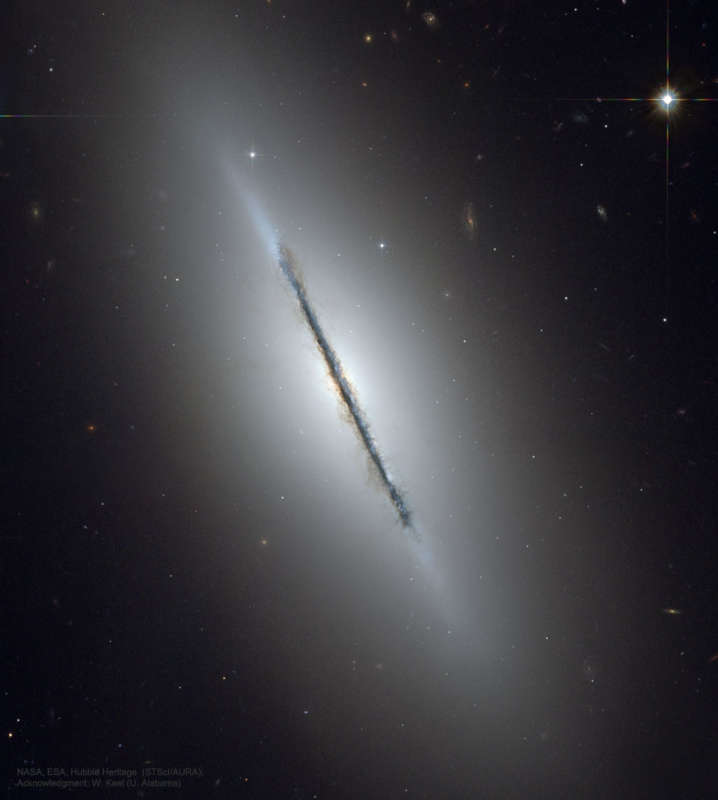Credit & Copyright: W. Keel
(U. Alabama)
Explanation:
Why is this galaxy so thin?
Many disk galaxies are just as thin as NGC 5866,
pictured here, but are not
seen edge-on from our vantage point.
One galaxy that is situated edge-on is our own
Milky Way Galaxy.
Classified as a
lenticular galaxy, NGC 5866
has numerous and complex dust lanes appearing dark and red,
while many of the bright stars in the disk give it a more blue underlying hue.
The blue disk of young stars can be seen extending past the
dust in the extremely thin galactic plane,
while the bulge in the disk center appears tinged more orange from the
older and redder stars that likely exist there.
Although similar in mass to our
Milky Way Galaxy, light takes about 60,000
years to cross
NGC 5866, about 30 percent less than light takes to cross our own Galaxy.
In general, many disk galaxies are very thin because the gas that
formed them collided with itself as it rotated about the gravitational center.
Galaxy NGC 5866
lies about 44 million light years distant toward the constellation of the Dragon
(Draco).
Almost Hyperspace:
Random APOD Generator
1999 2000 2001 2002 2003 2004 2005 2006 2007 2008 2009 2010 2011 2012 2013 2014 2015 2016 2017 2018 2019 2020 2021 2022 2023 2024 2025 |
Yanvar' Fevral' Mart Aprel' Mai Iyun' Iyul' Avgust Sentyabr' Oktyabr' Noyabr' Dekabr' |
NASA Web Site Statements, Warnings, and Disclaimers
NASA Official: Jay Norris. Specific rights apply.
A service of: LHEA at NASA / GSFC
& Michigan Tech. U.
|
Publikacii s klyuchevymi slovami:
edge-on galaxy - galaktiki
Publikacii so slovami: edge-on galaxy - galaktiki | |
Sm. takzhe:
Vse publikacii na tu zhe temu >> | |
